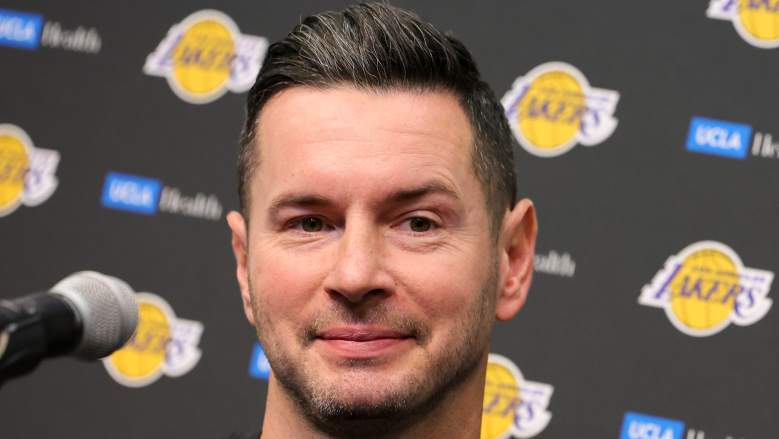I honestly thought I’d hate Microsoft’s controversial Recall feature and immediately disable it, but after using it for the past couple of weeks, I’ve been both creeped out and impressed with what it’s capable of.
Recall, a Windows 11 feature that takes snapshots of mostly everything you see on your screen, quickly became a controversy earlier this year after Microsoft announced it. Privacy advocates immediately started warning about potential issues with Recall without even using it, and security researchers found big holes in a prerelease version of the feature. Microsoft delayed Recall multiple times to give the company more time to address the security issues, and it’s now in testing for Windows Insiders ahead of a broader rollout next year.
The first thing I noticed about Recall is that the initial setup experience is very clunky and feels unfinished. You launch the app, and it redirects you to Windows Update, where AI models will start downloading and installing. Once you’ve installed a trio of these, it looks like the install process is complete — but then Windows Update will find another component of Recall to install. After fiddling around for 10 minutes, Recall will finally offer up a setup experience that allows you to enable or disable snapshots.
Snapshots are the key part of how Recall works, and they form the foundation of a scrollable timeline that lets you jump back through everything you’ve seen. They’re essentially screenshots of what you were working on, much like how your browser history is stored in a web browser. But critically, a screenshot of your entire screen has a lot more information.
When I first started scrolling through the Recall timeline, it freaked me out. My emails were recorded, my Slack messages with colleagues were snapshotted, and photos from a recent vacation all went into Recall’s database. Even drafts of dumb tweets I didn’t send were captured by Recall. It honestly felt a little creepy to scroll through my digital life like this.
I immediately removed Slack from being added to Recall and deleted its relevant snapshots. Microsoft makes it easy to exclude an app from Recall in settings but also just to remove snapshots for specific apps at a later date. You can select a snapshot from the search interface of Recall and remove the associated app or even websites.
Once I’d gotten over the creepy aspect of Recall and changed some settings, I mostly forgot about the feature for a few days and let it do its thing of snapshotting my laptop until two things happened that really surprised me.
Over the past couple of weeks, I’ve been doing some Christmas shopping, and I found the perfect gift for my partner and then immediately started searching around different stores for availability and pricing. I eventually got distracted and forgot to order the gift. A few days later, after I’d closed the tabs that I was using to search for the gift, I was trying to find it again. I headed into Chrome’s browsing history to find the website I’d seen with the best price, but I had searched through multiple retailers, so it was impossible to find the exact site without opening nearly 20 tabs and searching through manually again.
I pulled up Recall instead and searched just for “£85” on a whim, the best price I remember seeing for the item. Before I could blink, there it was, immediately in the Recall search interface. It didn’t take Recall minutes or even seconds; it was as instant as a Google search result. It was honestly surprising to see how fast this Recall search works, especially given Windows search features have only gotten worse over the years.
Recall also helped me review the social media accounts of the suspect in the killing of UnitedHealthcare CEO Brian Thompson. After the suspect was named, social media companies started removing profiles, but because I was browsing them with Recall, it stored them all on my PC before they vanished. I was able to scroll through the snapshots without having to rely on an online archiving service. As a journalist, I often have to screenshot tweets just in case someone deletes them, and Recall is just sitting there doing the work for me in case I forget.
Recall also lets you copy text or images from these snapshots it creates or, if it’s a website, you can just revisit the website again. Most of the time, this works well, but I have plenty of snapshots where Recall simply doesn’t recognize the text or let me copy it fully. There have also been times when I’ve searched for something I remember seeing and Recall didn’t store it, so it’s not recording literally everything you’ve seen.
While I’ve found some early examples of Recall helping me out, I still need more time to figure out whether I want to keep it enabled. As impressive as it is, I’m still wary of storing a digital trail like this on my laptop. I’m also waiting to see if security researchers are happy with Microsoft’s big Recall changes. One of the main changes means authenticating with Windows Hello every time you want to use Recall, which can be a little annoying right now. But if it keeps Recall secure, then I can’t really complain too much about this minor inconvenience.
It’s also important to note here that Recall will only be available on Copilot Plus PCs, so unless you’ve purchased one of these new laptops over the past six months, you won’t be able to access this new feature. There’s been a lot of FUD, largely from YouTubers, about how Microsoft is supposedly secretly planning to install Recall on every Windows 11 PC, but that’s simply not accurate. Recall is one of the headline features of Copilot Plus PCs and requires a dedicated NPU to run efficiently.
I’m now hoping that the new AI-powered changes to Windows Search will be as useful as Recall, without requiring snapshots of your PC. Microsoft is promising to launch a similar natural language search to the main search interface on Windows, allowing you to find files and documents without needing to know file names or search for pictures using words. If my experience with Recall is anything to go by, it should make finding files a breeze.
As I’ve started to rely more on Recall for searches, there have also been times I’ve been using my desktop PC and wished I had access to it. Microsoft is tying its new Windows AI features to NPUs, and we haven’t seen Intel or AMD lean into desktop CPUs that have Copilot Plus compatibility yet. I hope that changes soon because, as much as I’m not a fan of generative AI features that create images of people with six fingers, using AI to improve the daily tasks of searching for things on my PC is a far more compelling part of the future of Windows.
A Microsoft employee resigns with a protest over military contracts
A software engineer quit Microsoft last week with a protest email that encouraged coworkers to sign a petition against Microsoft’s partnerships with the Israeli military and government.
Angela Yu’s email hit the inboxes of hundreds or thousands of Microsoft employees, but I understand from multiple sources that the email didn’t go companywide. It appears that Yu identified email distribution lists with hundreds or thousands of employees in each of them, allowing her to get her message out widely without having to seek the usual approvals to email colleagues in bulk.
“I joined Microsoft with the belief that my work will advance technology for ‘the good of humanity,’” Yu wrote in her December 4th email. “However, some of Microsoft’s business policies and recent actions against my colleagues make me wonder if the company is staying true to its own principles. I’m especially concerned about the reports from this year that disclose Microsoft products like Azure are powering military weapons platforms responsible for killing tens of thousands of people.”
Yu also referenced Microsoft firing two employees earlier this year after they held a vigil outside of Microsoft’s headquarters for Palestinians killed in Gaza. Much like Yu’s email, the protest called out Microsoft’s dealings with Israel and the Israel-Hamas war. Ben Hope, a Microsoft spokesperson, said that Microsoft “communicated our policies clearly to event organizers” and requested that the event occur off campus.
“We have emphasized that we are committed to a professional and respectful work environment, providing various channels for employee voices. However, disruptions to business operations are not allowed,” Hope said.
The pad:
- Cruise’s demise will cost Microsoft $800 million. Microsoft says it will “record an impairment charge of approximately $800 million in the second quarter of fiscal year 2025” that’s tied to GM’s decision to pull funding for Cruise’s robotaxi service. Microsoft first invested in Cruise in 2021, and in return, Cruise used Azure to help speed up the commercialization of autonomous vehicles and manage its robotaxi fleet.
- Microsoft starts testing iPhone file sharing for Windows PCs. Microsoft has started testing some improvements to its Phone Link app for iPhone users that make it a lot easier to share files from an iPhone to a PC and vice versa. The Phone Link app is still far better when paired with an Android device, but it’s good to see that Microsoft hasn’t given up on trying to work around Apple’s various iOS restrictions.
- Xbox tests streaming your Xbox games to your Xbox. Xbox Insiders can now try out streaming some Xbox games they own to their Xbox consoles this week. It’s part of an expansion of the buy and stream initiative that Microsoft kicked off last month on the web, and it means you could play an Xbox game on your console without ever having to download it. You’ll still need Xbox Game Pass Ultimate to access Xbox Cloud Gaming, though.
- Microsoft wants to make the Xbox app the home of PC gaming. Microsoft has started updating its Xbox app with a new homescreen and more than 400 games that weren’t previously available in the app. It’s part of a broader effort to make the Xbox app a lot more friendly to PC games and surface Xbox Play Anywhere games that can be purchased and played across both PC and console. I’m expecting Microsoft to also start listing Steam games in this Xbox app in the future, making it a hub for all your games, regardless of where you’ve purchased them from.
- Microsoft AI’s CEO poaches former Google DeepMind colleagues for a new AI health unit. The Financial Times reports that Mustafa Suleyman, cofounder of Google DeepMind, has now hired multiple former colleagues to help run a new AI health unit at Microsoft. The former head of DeepMind’s health unit, Dominic King, has been hired as vice president of Microsoft AI’s new London-based health team. Microsoft has confirmed the effort, and as Suleyman is focused on consumer AI efforts, it will be interesting to see exactly where this goes. If you know anything, drop me a line at notepad@theverge.com.
- Microsoft is giving Copilot a new taskbar UI and keyboard shortcut on Windows. Copilot has gone through a lot of changes on Windows over the past year, and it’s changing once again. After demoting Copilot to a Progressive Web App (PWA) earlier this year, Microsoft is now rolling out an update to Windows testers that replaces the PWA version of Copilot with a “native” experience that includes a new keyboard shortcut and quick-view UI. I say “native” because this isn’t really a Windows app; it’s just a web app wrapped up to look more native to Windows. The new quick view floats above the taskbar, much like Microsoft’s new Companion apps, and can be triggered with a new Alt + Space keyboard shortcut.
- Microsoft AI chief Mustafa Suleyman says conversational AI is the next web browser. Verge editor-in-chief Nilay Patel sat down with Microsoft’s AI CEO recently to discuss his time at the software giant, how he defines AGI, and the complicated relationship between Microsoft and OpenAI. It’s an hour-long conversation that’s well worth tuning in to.
- Another Microsoft 365 outage knocks web apps offline. Microsoft had another major Microsoft 365 outage earlier this week, the second in two weeks. This time, web apps like Outlook and Teams were impacted, and Microsoft recommended that businesses turn to desktop apps to access data and documents while the outage was ongoing. Hopefully we don’t enter a third week of Microsoft 365 outages.
- Windows 11’s 24H2 update now works with more Ubisoft games. Microsoft stopped offering 24H2 to gamers with certain Ubisoft games installed recently, but it’s now opening the door for players of Avatar: Frontiers of Pandora and Star Wars Outlaws. Microsoft is applying a “temporary” patch to get the games running again, but Assassin’s Creed games like Valhalla are still affected, and systems with these titles remain blocked from upgrading.
- Microsoft has created an Xbox 360 Red Ring of Death ugly sweater. Microsoft employees spotted an “Xbox 360 glitch holiday sweater” at the employee-only company store earlier this week. It includes a power button that illuminates green, and there’s even an interchangeable module that produces the Red Ring of Death. It sold out within hours, and it doesn’t look like Microsoft is going to be selling this particular item outside of just Microsoft employees.
- Microsoft hires Captain America to sell AI-powered laptops. Microsoft is stepping up its Copilot Plus PC marketing with a new ad for the upcoming Captain America: Brave New World movie. The 60-second spot features Danny Ramirez’s Joaquin Torres (Falcon) using a Surface Laptop 7 with Paint’s Cocreator AI mode to generate images. Microsoft has been running similar TV ads in recent weeks, claiming that its Qualcomm-powered laptops are somehow “the fastest... Windows PCs ever.”
- Microsoft loses a key Windows executive. Shilpa Ranganathan, who spent more than 16 years at Microsoft in various Windows roles, is now returning to Expedia as chief product officer. Ranganathan managed a team responsible for Microsoft Launcher and the company’s cross-device efforts in 2018. Ranganathan most recently served as a member of the senior leadership team of Windows and was focused on the product management and engineering of the Windows Shell, AI Copilot, and developer platform and experiences.
- Microsoft Surface rumors point to a big Copilot Plus refresh next year. Microsoft is rumored to be updating its Surface lineup for 2025 with Intel Lunar Lake-based Copilot Plus PCs. Windows Central reports that the Surface Laptop Studio is due an upgrade to make it Copilot Plus-compatible and that Microsoft is preparing Intel Lunar Lake versions of the Surface Laptop and Surface Pro, too. Microsoft loves to hold Surface events in the spring or fall, so we could be looking at some announcements in the coming months.
- Microsoft joins Bluesky and immediately nerds out. Microsoft managed to join Bluesky in style last week. The first post included an image of the Windows XP Bliss wallpaper and a pun about blue skies, but Microsoft even backdated this post to its founding date of April 4th, 1975, using Bluesky’s AT Protocol. That’s the kind of nerdery that Bluesky users appreciate. If you’re on Bluesky, you can find me @tomwarren.co.uk.
- Google asks the FTC to kill Microsoft’s exclusive cloud deal with OpenAI. Google has reportedly asked the Federal Trade Commission to break up Microsoft’s exclusive agreement to host OpenAI’s technology on Azure. The Information reports that the FTC conversation took place as part of a broader investigation into Microsoft’s cloud business. Google has also been lobbying regulators in Europe to put pressure on Microsoft’s Azure pricing and licensing. As I’ve written before, Microsoft and Google are very much at war again.
- Microsoft ends Surface Studio 2 Plus production with no successor in sight. Microsoft has quietly ended production of its Surface Studio 2 Plus all-in-one PC two years after introducing the latest model. It now looks like the end of the road for Microsoft’s innovative Surface Studio, once considered the ultimate all-in-one Windows device. While the Surface Studio was always an expensive and niche device, there was nothing else quite like it on the market. I’m still holding out hope that Microsoft might one day release a standalone folding and transforming screen so we can turn any laptop or PC into a Surface Studio.
- You can now try Microsoft’s Recall AI feature on Intel and AMD Copilot Plus PCs. After opening up Recall to Qualcomm-powered Copilot Plus PCs last month, Microsoft has expanded the testing pool to Intel- and AMD-powered Copilot Plus devices. It has also enabled some of the first Windows AI features on these x86 laptops, so I’d expect these will start rolling out beyond Windows Insiders soon.
- Microsoft kills off suggested actions in Windows 11. Suggested actions were added to Windows 11 to surface phone numbers or dates in the OS and let you quickly take actions on them. Now, Microsoft says this underused feature is being “deprecated and will be removed in a future Windows 11 update.”
- The Windows 11 system tray might get an emoji button soon. I’m not sure who is asking for an emoji button to clutter up the system tray, but Microsoft’s latest Windows 11 builds reference the potential for one soon. Hopefully this can be fully disabled easily.
- Xbox is sponsoring Luke “The Nuke” Littler. If, like me, you’re a fan of darts, then this is a marketing crossover you might have seen coming. Luke Littler, who hit the headlines as a 16-year-old prodigy last year at the World Darts Championship, is now sponsored by Xbox for the same tournament this year. Littler plays FIFA and Fortnite on his Xbox and regularly speaks about wanting to get back to his Xbox after matches — so this seems like the ideal pairing.
Thanks for subscribing and reading to the very end. As we’re nearly at the end of 2024, this will be my last issue until the new year. I’m taking a two-week break over the Christmas period, before the CES shenanigans begin. I’m not expecting big news from Microsoft directly at CES, but I’m sure some of its software will appear in some unusual places in January. Stay tuned for more of that next year, and thanks for reading all my work throughout 2024.
If you’ve heard about any of Microsoft’s other secret projects, you can reach me via email at notepad@theverge.com or speak to me confidentially on the Signal messaging app, where I’m tomwarren.01. I’m also tomwarren on Telegram, if you’d prefer to chat there.
 2 hours ago
2
2 hours ago
2






![Ana de Armas' latest romantic date with Manuel Anido Cuesta in Madrid [PHOTOS]](https://www.hola.com/us/horizon/landscape/0154db955627-paris-france-ana-de-armas-wears-a-black-coat-a-black-dress-in-transparent-lace-o.jpg?im=Resize=(1200))












 English (US) ·
English (US) ·